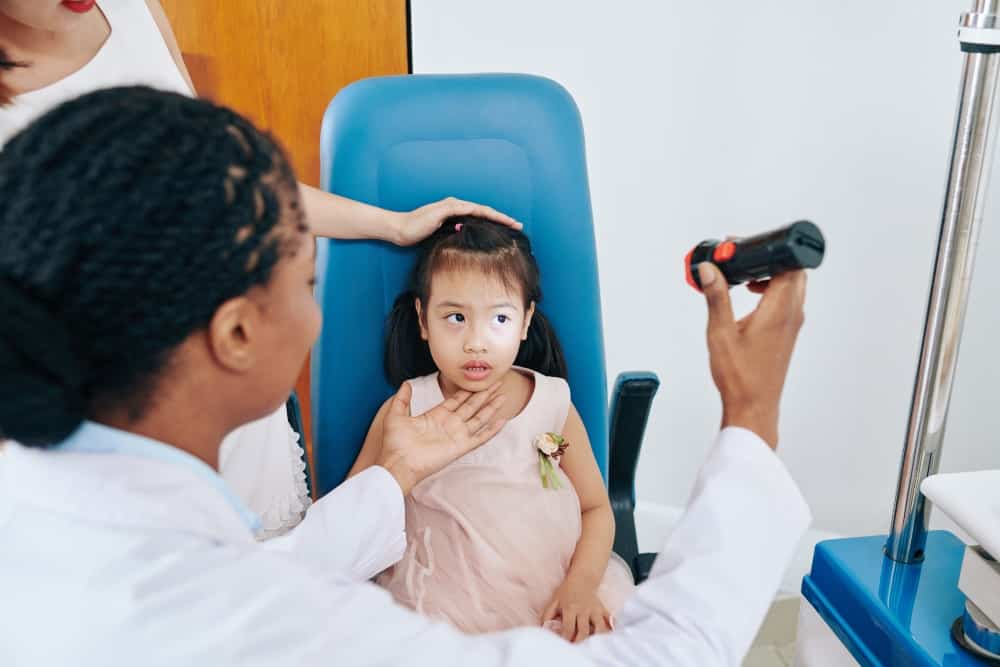An adult knows when it’s time to go to the eye doctor, but a child might not know. It’s up to you to look for signs telling you it’s time for your kid to see an eye doctor, and the following are five of those signs.
Table of Contents
Squinting
A big sign revealing something might be wrong with your kid’s vision is squinting.
There’s a reason squinting helps you see better, but this also tells you something is wrong with your kid’s eyes. There could be a refractive error in the eyes, making it harder for your kid’s eyes to focus.
The error could be relatively small, which means your kid doesn’t need to squint too often, or it could be more serious.
Whatever the problem is, this is something your kid’s eye doctor can help with. Try to make an appointment as soon as possible to get answers.
Closeness
Your kid probably uses digital devices for various reasons. Maybe your kid uses these devices for entertainment, but he or she might also need these devices for school.
Whatever the reason, you have to pay attention to the way your child uses the device. If your kid holds the device close to the face, then you know something might be going on.
This goes for any screen your child uses as a regular TV. A child who does this could be nearsighted and might need glasses. Do not worry though.
This doesn’t necessarily mean your kid is going to have to wear glasses. He or she could also use something like soft contacts or even colored contact lenses.
Keep in mind that too much screen time is bad for the eyes anyway, so try to limit your kid’s screen time. There are apps you can use to limit device use to certain times.
Tilt or Cover
Misaligned eyes is a relatively common condition that could affect vision. The issue could be severe or mild.
One thing a person dealing with this condition experiences is double vision, and that means things won’t be clear for your child.
People adapt and a kid dealing with this might start to tilt his or her head every so often, which seems to make things clearer.
Other kids might cover one eye to see better, which also works. These solutions aren’t real solutions. You don’t want your kid to deal with this problem, so you need to talk to an eye specialist as soon as possible.
Eye Rubbing
Everyone rubs their eyes at some point, but doing it excessively could be a sign of a problem.
Try to pay attention to your kid, and if he or she does this often, make sure you take notice. When this happens, it means your kid’s eyes feel strained or tired.
Rubbing eyes makes your eyes feel better, but it’s definitely not a solution. This could be a sign of an eye allergy.
Your kid could have been exposed to an eye irritant, but that’s not always the case. Eye strain could also be linked to various eye conditions.
You don’t want to gamble with this sign of trouble. The faster your kid is examined, the faster you’ll know your options.
Concentration Troubles
Kids sometimes have trouble concentrating, and there could be a lot of reasons this could be happening.
Sometimes, it’s not so serious. Maybe the lesson is a little boring, but it definitely could be more serious.
Some kids have trouble because they are suffering from things like ADD or ADHD, but one issue that is often overlooked is poor vision.
If you notice that your kid is having trouble concentrating or your child’s teacher tells you this, then there could be a problem.
Your kid might make excuses why he or she couldn’t answer questions on the board, or your child may not want to read as often. You don’t want your kid to fall behind in education because of vision problems.
These are just some signs you need to be looking out for. If you want, you can talk to your eye specialist to see if there are other signs you should be looking out for.
- How Primary Care Doctors Are Your First Line of Defense - December 23, 2024
- Live-In Caregiver Jobs: Providing Support, Building Bonds - December 19, 2024
- Caring for Your Porcelain Veneers: Tips for a Lasting Smile - November 12, 2024
